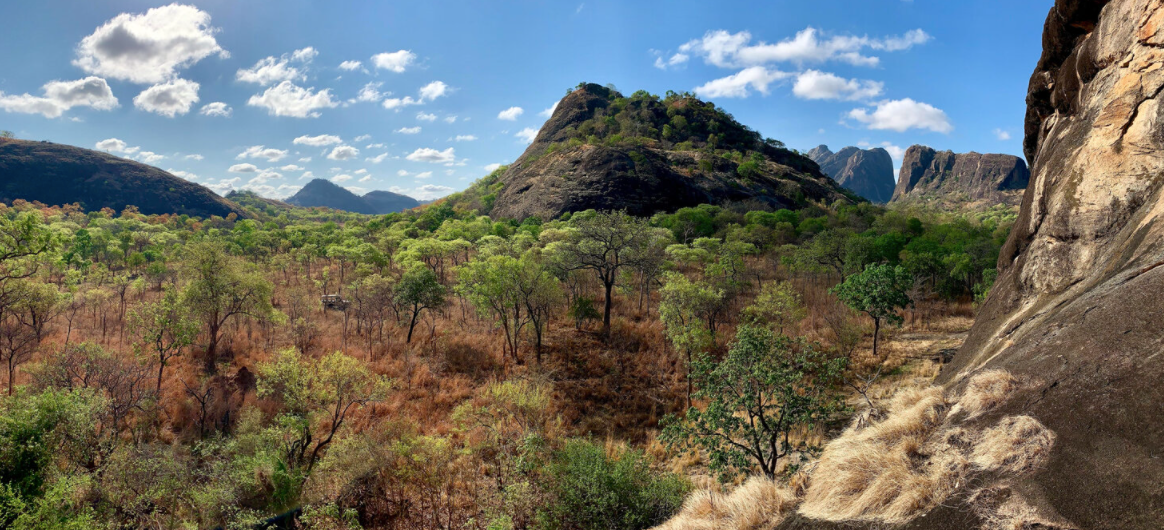Mozambique forges new partnerships to protect biodiversity
President Nyusi commits to doing whatever it takes “to defend animals”, because without them “we are no longer Mozambique”

Your support helps us to tell the story
From reproductive rights to climate change to Big Tech, The Independent is on the ground when the story is developing. Whether it's investigating the financials of Elon Musk's pro-Trump PAC or producing our latest documentary, 'The A Word', which shines a light on the American women fighting for reproductive rights, we know how important it is to parse out the facts from the messaging.
At such a critical moment in US history, we need reporters on the ground. Your donation allows us to keep sending journalists to speak to both sides of the story.
The Independent is trusted by Americans across the entire political spectrum. And unlike many other quality news outlets, we choose not to lock Americans out of our reporting and analysis with paywalls. We believe quality journalism should be available to everyone, paid for by those who can afford it.
Your support makes all the difference.Mozambique’s President Filipe Nyusi made a bold global commitment to protecting wildlife by joining The Giants Club, an international forum of political leaders, businesspeople, financiers, philanthropists, conservationists, and scientists all committed to the preservation of biodiversity.
In a signing ceremony in Niassa Special Reserve, held as part of Mozambique’s celebrations of World Ranger Day on 31 July, President Nyusi said: “Thanking the founder of the Giants Club for an initiative aimed at elephant conservation, with the Africa headquarters in Nairobi, which gives me the honour of joining my peers, the Presidents of Botswana, Gabon, Kenya, Rwanda and Uganda to display our commitment to the conservation of flora and fauna, especially of endangered species.”
“Let it be known that on behalf of the Mozambican people I represent, we will honour this recognition and will prioritise the global interest of protecting the elephant.
“Mozambique will continue to become an elephant nature reserve and we extend our genuine love to all other animals, in particular, the lion that is being persecuted a lot in Mozambique We will do everything to defend these animals because they are part of us, without these animals we are no longer Mozambique”.
Mozambique is rich in biodiversity, with over 5,500 plant species of which 250 are endemic, and more than 740 species of birds.
President Nyusi became the seventh African Head of State to join the Giants Club, alongside President Mokgweetsi Masisi of Botswana, President Ali Bongo Ondimba of Gabon, President Uhuru Kenyatta of Kenya, President Paul Kagame of Rwanda, and President Yoweri Museveni of Uganda, who are all joint leaders of The Giants Club. Botswana’s Former President Ian Khama acts as President Emeritus.
The Giants Club is an initiative of the international conservation organisation Space for Giants which, with partner organisations, implements the programmes that The Giant’s Club’s Heads of State choose as their conservation priorities. Space for Giants is headquartered in Kenya and operates in 10 countries across Africa, including Mozambique.
Stuart Slabbert, Managing Director of Conservation at Space for Giants, said: “Space for Giants and The Giants Club are very honoured that President Nyusi is joining to become our latest Head of State member.
“His commitment to conservation is clear, and partnering with organisations like Space for Giants supports Mozambique to meet challenges such as human-elephant conflict while also bringing in fresh expertise and experience to promote domestic and international investment in responsible conservation and tourism enterprises. Partnerships between the public and private sectors will generate new revenue from a wildlife economy for the benefit of Mozambique’s citizens, and this collaboration can support efforts to deter the illegal wildlife trade.”
Join our commenting forum
Join thought-provoking conversations, follow other Independent readers and see their replies
Comments